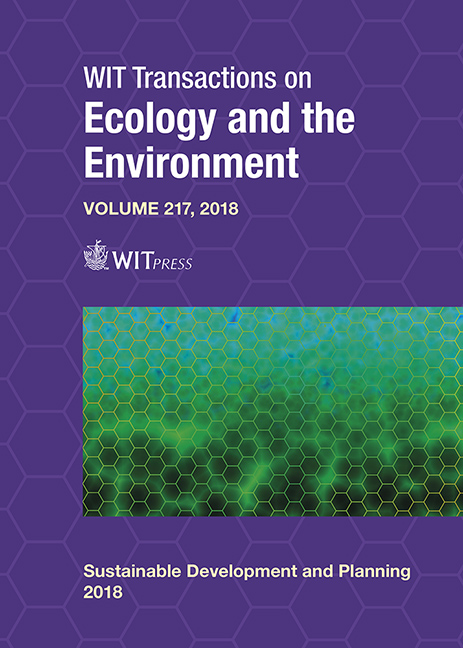KEYS FOR SUSTAINABLE DEVELOPMENT AT THE RECONQUISTA RIVER BASIN, ARGENTINA: LEARNING FROM THE PAST
Price
Free (open access)
Transaction
Volume
217
Pages
7
Page Range
305 - 311
Published
2018
Size
220 kb
Paper DOI
10.2495/SDP180281
Copyright
WIT Press
Author(s)
ESTELA MÓNICA LÓPEZ SARDI
Abstract
The implementation of sustainable development policies is always a difficult task, especially in a region subject to decades of poor territorial planning, such as at the Reconquista River Basin. Environmental pollution, floods, serious land use changes and a large part of the population living in poverty without access to basic services are the consequences of this failed policy. Understanding the reasons for this failure is a key to achieve sustainable development in the future. The objectives of this research were to identify the ideas and concepts on which the territorial planning of the basin was based as well as the causes of its failure. The problem was approached by studying the documentation of the main territorial plans and projects performed at the basin over time and through the revision of intervention programs and execution of works. The methodology used was a critical analysis of the facts responsible for the basin degradation and research of the reasons that caused the divergence between the way the region was initially and its current status. Significant causes for the failure of the historical territorial planning of the basin were detected by comparing unsuccessful plans with successful initiatives. The lack of long-term policies and the absence of coordination between different government levels are included among them.
Keywords
Reconquista River basin, historical territorial planning, sustainable development, long-term policies





